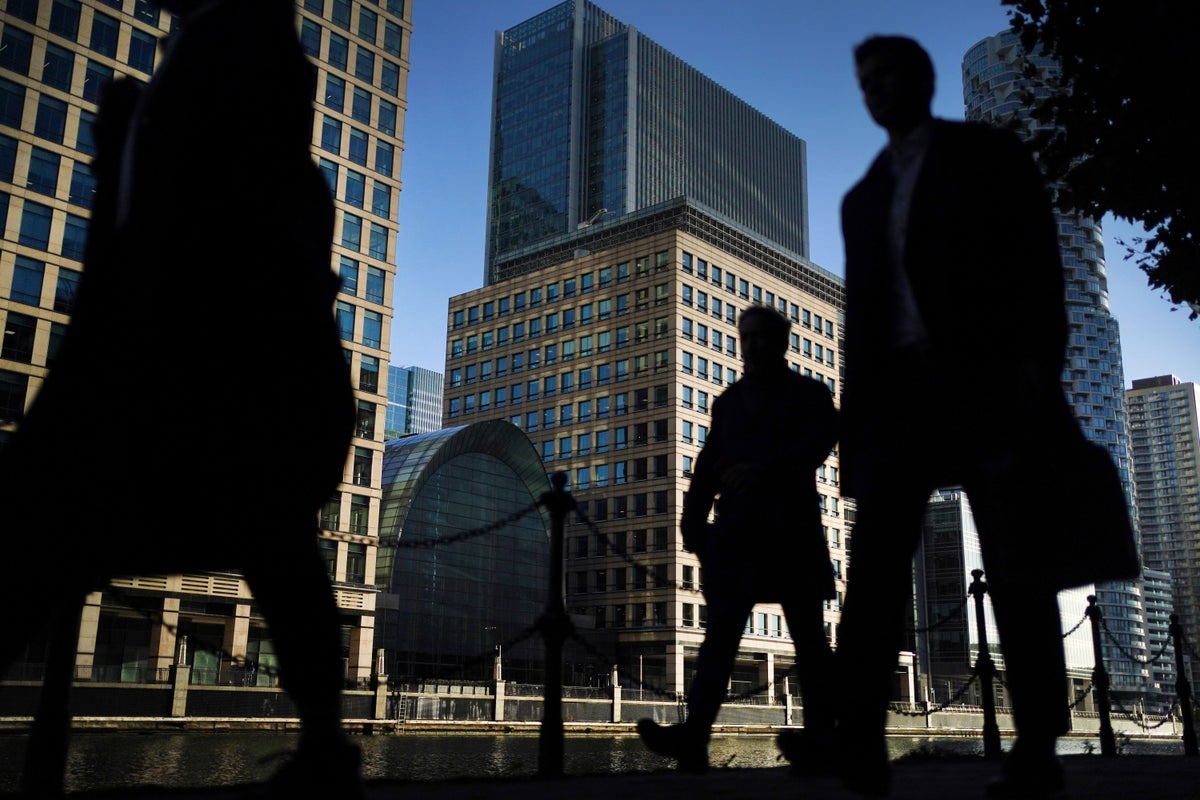
The UK economy is at risk of entering a recession next year amid pressure from higher interest rates and increased unemployment, a think tank has warned.
The National Institute of Economic and Social Research (Niesr) said in its main forecast that the economy will avoid a recession – defined by two or more quarters of falling gross domestic product (GDP) in a row – this year but there is still a “60 per cent risk” of a recession at the end of 2024.
It predicted that UK GDP will increase by 0.4 per cent in 2023, representing a marginal improvement on its previous forecast in May.
But Niesr also downgraded previous predictions of 0.6 per cent growth next year down to 0.3 per cent after pressure from higher-than-expected borrowing costs.
As a result, the think tank has predicted it will be another year until UK GDP recovers to where it was before the coronavirus pandemic struck in early 2020.
It said higher interest rates, which it expects will peak at 5.5 per cent, will particularly weigh on growth prospects.
Stephen Millard, deputy director for macroeconomic modelling and forecasting at Niesr, said: “The triple supply shocks of Brexit, Covid and the Russian invasion of Ukraine, together with the monetary tightening that has been necessary to bring inflation down, have badly affected the UK economy.
“As a result, we expect stuttering growth over the next two years and GDP to only recover to its 2019 Q4 level in 2024 Q3.
“The need to address the UK’s poor growth performance remains the key challenge facing policy-makers as we approach the next election.”
The report also warned that jumps in borrowing costs, persistent inflation, and a projected rise in unemployment will widen inequality across society.
Niesr said the poorest households will see a 17 per cent shortfall in their disposable incomes in 2024 compared with five years earlier, while the richest households will only see a 5 per cent drop.
It comes as food and energy price rises have put poorer Britons under pressure.
The fresh forecasts have shown a slight improvement in inflation projections, with Consumer Prices Index inflation set to drop to 5.2 per cent by the end of 2023, narrowly meeting prime minister Rishi Sunak’s pledge to halve inflation this year.
Niesr has predicted that inflation will continue to ease back but slower than predicted, with inflation due to slow to 3.9 per cent by the end of 2024 and only fall to the Bank of England’s 2 per cent target by 2025.
Wages are expected to grow ahead of inflation next year in a boost to many households, the report added.
However, Niesr also predicted that unemployment will rise significantly over the next two years.
The unemployment rate – which was most recently recorded at 4% for the three months to May – is set to be 4.1 per cent for this year, rising to 4.7 per cent in 2024 and 5.1 per cent for 2025, according to the forecasts.
Adrian Pabst, deputy director for public policy at Niesr, said: “The aggregate shocks to the UK economy have widened disparities of income and wealth across the household distribution and between prosperous and poor parts of the country.
“The increasing inequalities facing poorer families are reflected in slower wage growth and fast-rising unsecured debt.
“For some of the poorest in society, coping with low or no real wage growth and persistent inflation has involved new debt to pay for permanently higher housing, energy and food costs.”







